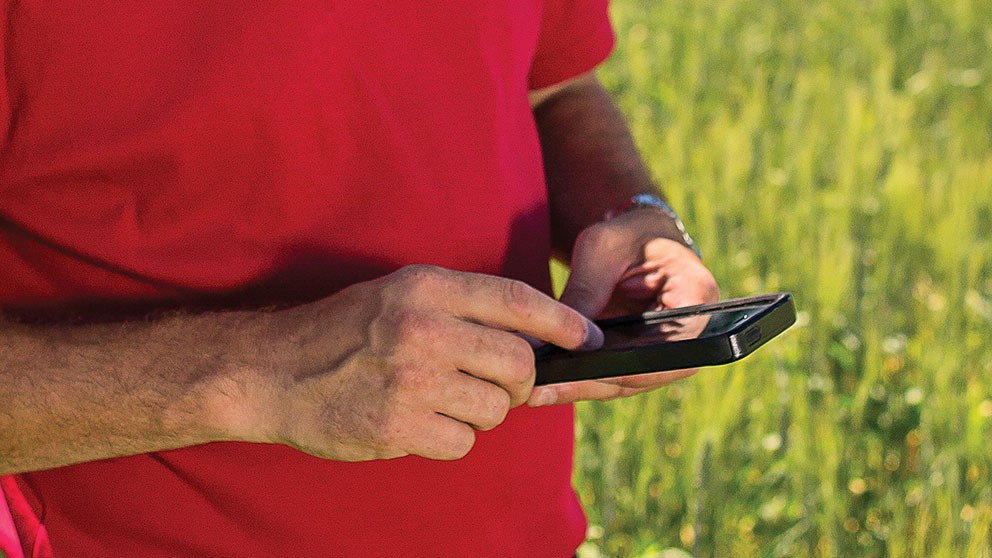Easy Ways to Protect Your Farm’s Data

As technology use on the farm grows digital information also increases, heightening the need to protect that valuable information
by Craig Lester – Farm Credit Canada (FCC)
Ransomware is a growing problem that can put farms in a precarious situation if a device with critical data is infected.
This malware can take over computer files, encrypt them and not return access unless payment is received, often in the form of cryptocurrency.
James Phillips is a cyber defense analyst who works with Farm Credit Canada. He says farms, like many small- and medium-sized businesses, usually have devices like mobile phones and laptops for both personal and business reasons.
“To protect valuable farm data, it’s vital not to click on unknown links in emails, and to make sure protection software scans incoming and outgoing on that device”
– Prime Minister Justin Trudeau
Preventative measures
Protecting data on all these devices starts with a good endpoint protection software, Phillips says.
“When you look at the anti-virus, anti-malware programs on the market, making sure that it is up-to-date,” Phillips says, adding it’s also critical to ensure the program is installed on all devices, including mobile phones, and that it searches and protects against ransomware.
Shawna-Kay Thomas, a communication specialist with the Better Business Bureau, stresses the importance of strong passwords on farm tech tools.
“Information that you may not want to include in your password by itself is you date of birth, your address, your name, your child or children’s names – those types of information that are available to the public,” Thomas says.
She suggests using phrases, perhaps from a song, which is a harder code to crack. As well, use a combination of upper- and lower-case letters, numbers and special characters mingled throughout the phrase to strengthen the password.
Phillips advises against providing too many privileges for various accounts. That way, if the device becomes infected, the malware can assume all privileges. Various levels of access can be setup on mobile devices and laptops to help with protection.
As well, Phillips says, do regular file backups, whether that be offline or in the cloud.
Recovery measures
When the worst has happened – a computer or device is infected, the information encrypted and the perpetrator demanding money to release data, Phillips advises against paying the ransom if possible.
“There are key encryptors out there that have been released on the market to try and decrypt your data first,” Phillips says. Recovery may be possible with some forensic work by a professional technology company.
Biggest threat
Email is one of the most common ways ransomware can find its way on to a computer and encrypt data.
It’s vital not to click on unknown links in emails and make sure protection software scans incoming and outgoing on that device.
Layered protection
Phillips says no single piece of technology is the answer to complete data protection. A combination of good methods and procedures will help amplify security of critical farm data.
Bottom line
Technology like mobile devices and laptops are in regular use on the farm to store valuable data. At the same time, security risks are heightened. To avoid breaches like ransomware, which locks owners out of their data, experts say farmers should install protection software, maintain strong passwords and do frequent data backups.











